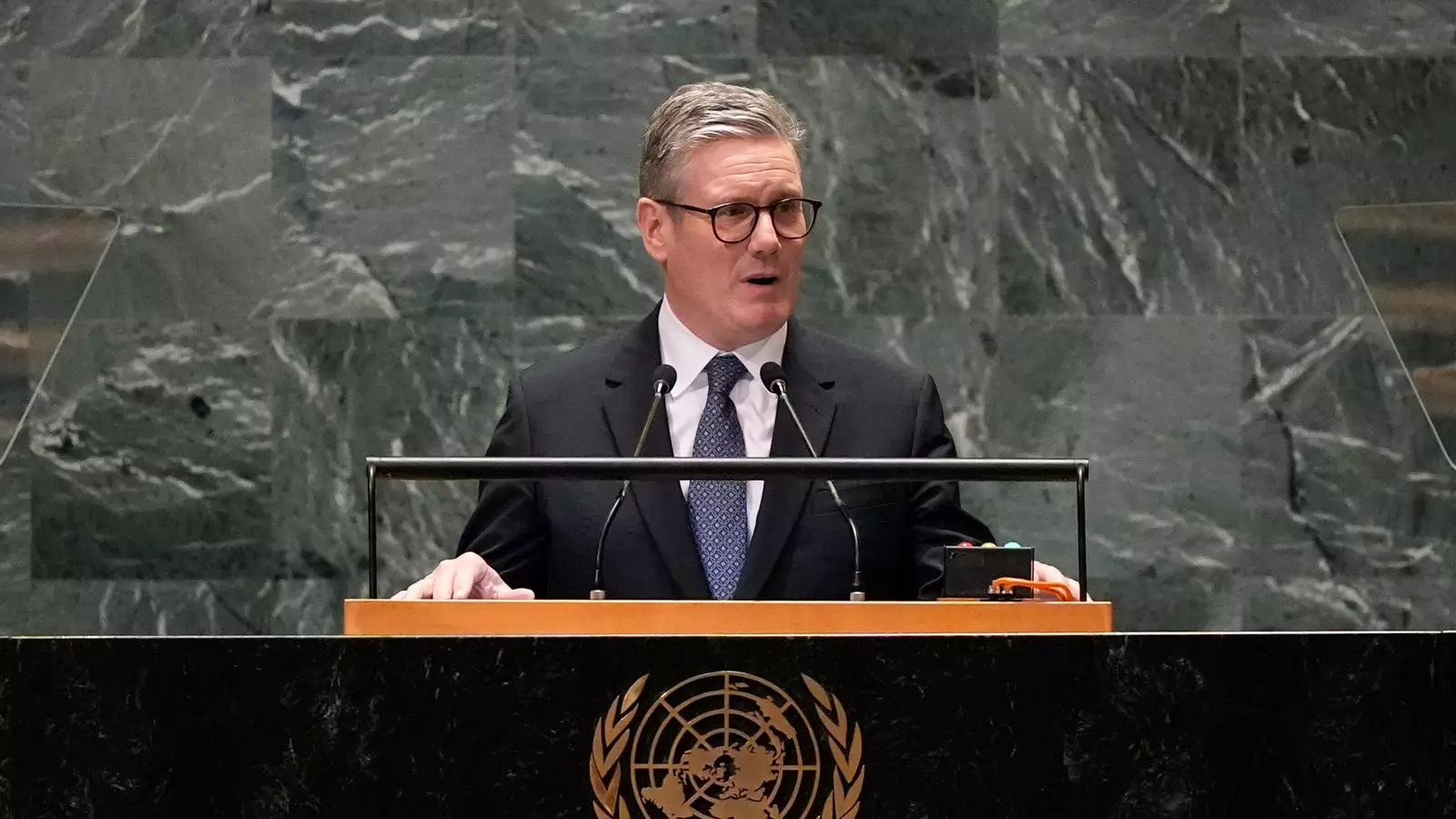During a pivotal moment at the United Nations General Assembly, UK Prime Minister Sir Keir Starmer made an impassioned plea for an immediate ceasefire between Israel and Hezbollah. His call to action emphasized the urgency of de-escalation, stating that “escalation serves no one.” This rhetoric reflects a growing concern over the intensifying conflict in the region and the potential for a broader humanitarian crisis. Starmer’s message resonates particularly in the context of recent statements from Israeli Prime Minister Benjamin Netanyahu, who has reiterated his stance on maintaining military operations, directly contradicting any notions of an impending ceasefire.
Starmer’s insistence on the need for both parties to “step back from the brink” highlights a diplomatic approach aimed at fostering a necessary hiatus for peace negotiations. In his address, he underscored the importance of cessation of hostilities as a prerequisite for diplomatic dialogue. This call to action not only addresses the immediate conflict but also reflects broader geopolitical concerns regarding stability in the Middle East.
A significant portion of Starmer’s speech tackled the role of international organizations and the UN in promoting peace and security. His remarks were particularly pointed in calling for the UN to “work together for peace, progress, and equality.” This represents an acknowledgment of the UN’s pivotal role in conflict resolution, urging member states to recommit to conflict prevention frameworks. Sir Keir’s emphasis on collective action against the backdrop of the Israel-Hezbollah tensions illustrates the intricate balance of diplomacy required to manage international conflicts.
Moreover, Starmer’s critique of Russia’s actions in Ukraine diverted some attention to the geopolitical dynamics that influence the Israeli-Palestinian conflict. His assertions highlight the need for a united front against aggression that undermines international law, thereby reiterating the responsibility of powerful nations to uphold global norms. By focusing on both the Israeli and Hezbollah situation alongside the challenges presented by Russia, Starmer positions the UK as a proactive player in global diplomacy.
In a significant shift towards domestic policy, Starmer utilized his platform at the UN to announce ambitious plans for investing retirement savings into combating climate change. This marks a departure from traditional fiscal frameworks, which often prioritize short-term economic gains over sustainable development. By pledging “billions” from pension and insurance funds toward environmental initiatives, he advocated for a long-term liberalization of investment strategies aimed at fostering resilience against climate-related challenges.
Starmer’s collaboration with British International Investment and the City of London reflects a strategic alliance to bolster growth in sustainable sectors. His comments on “innovating,” “thinking differently,” and “moving faster” underscore an adaptive approach necessary to address the pressing threats of climate change effectively. This financial strategy is aligned with a broader commitment to integrate development and environmental sustainability in the UK’s growth model, demonstrating a holistic understanding of global interdependencies.
In a notable subplot to Starmer’s UN visit, the announcement of a forthcoming meeting with Donald Trump implies a complex maneuvering within the political landscape as the US gears up for its elections. While Starmer’s desire to engage in dialogues that transcend partisan boundaries is commendable, the likelihood of interaction with figures like Kamala Harris presents a reflective moment on the dichotomy of political alliances.
The significance of these meetings lies in their potential to enhance bilateral relations, allowing for a shared understanding of pressing global issues amid contrasting domestic policies. The juxtaposition of Starmer’s progressive agenda against the backdrop of impending US elections suggests a strategic navigation of international diplomacy, aiming to gain insights and foster collaborative approaches on mutual concerns such as security and environmental sustainability.
Sir Keir Starmer’s address at the United Nations General Assembly presents a multifaceted approach to urgent conflicts, climate initiatives, and international diplomacy. His calls for peace amidst escalating tensions between Israel and Hezbollah serve as a reminder of the complex interplay between domestic and global issues in contemporary politics. By advocating for sustainable financial practices and fostering dialogue with world leaders, Starmer positions the UK as a key player in both humanitarian and environmental domains, reflecting a vision of strategic foresight in navigating the global landscape.


Leave a Reply